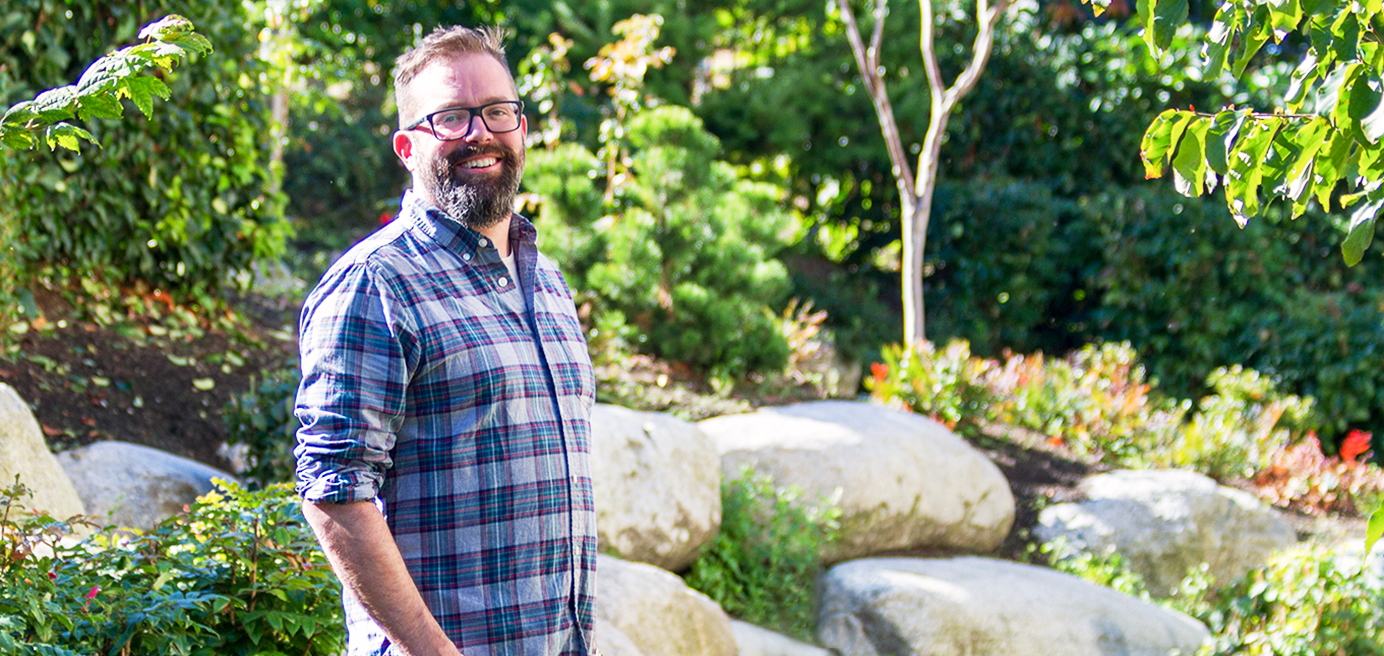 Human Rights and Equity Q&A
Human Rights and Equity Q&A

An interview with Men in Nursing group chair Lee Frederick
BCNU's Men in Nursing (MiN) group works to break down outdated stereotypes and encourage more men to enter the nursing profession and to become more active in the union.
Men working in the nursing profession face some unique challenges. By taking on a non-traditional role, they may face gender-based bias. And while many more men are entering nursing today, the prevailing view is that nursing is still a "female occupation."
Lee Frederick was elected chair of the MiN group in October 2017. The Nanaimo LPN has worked at Arrowsmith Lodge in Parksville for nearly seven years. He earned his nursing degree from Vancouver Island University.
Update Magazine recently spoke with Frederick to find out more about the ongoing work of the MiN group.
UPDATE Why did you choose nursing?
FREDERICK My mother was a nurse and I have always been interested in the medical field. I also knew that nursing was a career in demand. One of the practicum placements for my nursing program was at Arrowsmith Lodge. During that time I grew to care very much about the residents there and I really liked the environment, so after I graduated I applied for a job there and they hired me.
UPDATE What did you do before nursing?
FREDERICK I was an educator before I became a nurse. I lived in China for 10 years as a teacher and worked my way up to school headmaster before I returned to Canada.
UPDATE How did you become involved with the MiN group?
FREDERICK Joanne Ord, the communications secretary for BCNU's Pacific Rim region, convinced me to take the Building Union Solidarity (BUS) course, so that was my introduction to activism in my union. I also completed my OH&S certification and became a BCNU steward so I could be the Joint Occupational Health and Safety Committee representative at my worksite. I began to attend regular BCNU meetings and I really liked my union's message, so I thought it was a good place to be an advocate for both my patients and my co-workers.
I gradually started to look for ways to be more involved in my union and found out the Men in Nursing position for my region was vacant so I put my name forward and was happy to fill that position. That was almost a year and a half ago and now I'm honoured to chair BCNU's MiN group. Our most recent meeting was my first serving in this new capacity, so I'm still figuring out all the duties and relationships that are involved. But anyone who knows me says that I am a vocal person. I have opinions and I'm not afraid to share them, so becoming involved with BCNU was a natural fit for me.
UPDATE Why is this group needed and what are some of the shared challenges you face?
FREDERICK Male nurses are a recognizable minority in our profession. I think the MiN group gives focus to a group within BCNU that allows us to be strong allies to the equity-seeking caucuses. In a union that's 90 percent female, our voice might otherwise be lost if MiN didn't exist.
Men usually are not belittled or discriminated against in general society, but within the nursing profession and in the workplace there are lingering role discrepancies. Men may occupy disproportionate roles of leadership at some worksites. At other facilities the Code White team is mostly male. In many instances male nurses are more likely to be called on to deal with dangerous or violent patients. However, according to the language in our contract, I'm still a "she". My predecessors in the MiN group worked really hard to finally get paternity leave included in our contract, which took a long time.
UPDATE What has the group been working on lately?
FREDERICK We're in the middle of our participation in the national Movember campaign, so many of us are growing a mustache. The annual event takes place in November and men are encouraged to grow mustaches to raise funds and awareness about men's health issues like prostate cancer, testicular cancer, and men's suicide.
Mental health and suicide prevention in particular is one of my personal areas of vital concern. For males, the lack of healthy communication skills typically goes back to stereotypes that say strong men internalize negative emotions and don't talk about things. Too often that is what's expected of us. Men everywhere have to start talking about these issues more and the MiN group wants to lead the way by example.
UPDATE What are some of the goals of the MiN caucus?
FREDERICK A key goal is to be a strong ally for the BCNU equity-seeking groups since our circle intersects with all of BCNU's other human rights and equity caucuses.
Since roughly 50 percent of the population is male but 90 percent of the people caring for them are not, we are also focused on encouraging more men to join the nursing profession. We want to do outreach such as job fairs at secondary schools so young people can see past the stereotypes. We can show them the professional male face of nursing. Young men should know that being a nurse is a good job, and an interesting job.
UPDATE What message would MiN like to share with readers?
FREDERICK Men in nursing matter. The way we communicate differently means that some patients may feel more comfortable and be more open when discussing their health concerns with a male nurse. As a minority we hope to have a voice that is seen as important, so our work will continue to focus on issues that need representation. •
To join the Men in Nursing group, please contact the chair via email at meninnursing@bcnu.org or Hanif Karim, BCNU human rights, equity and health policy officer: hkarim@bcnu.org
UPDATE (Dec 2017)

